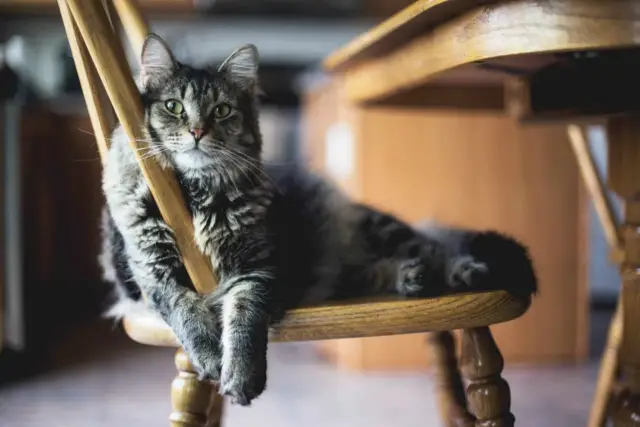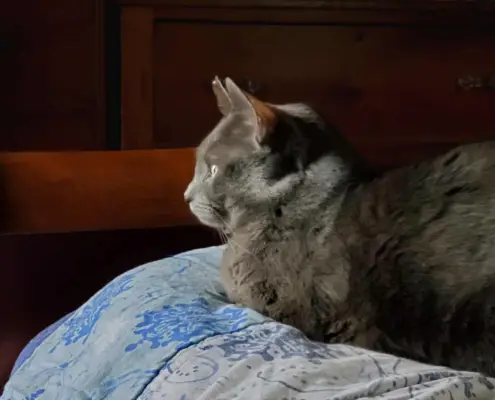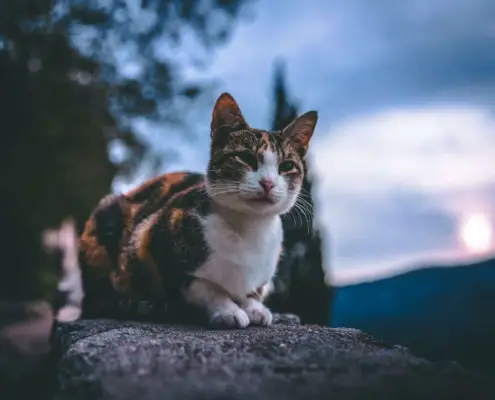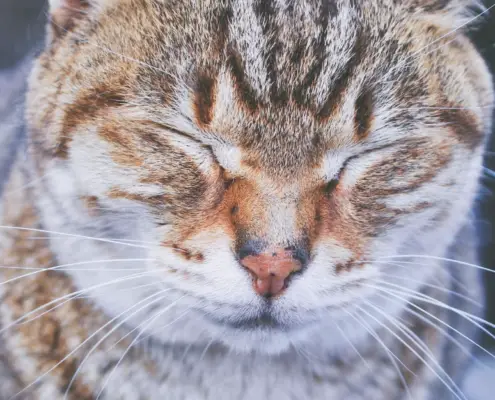
Cats have long fascinated humans with their remarkable agility and ability to jump to impressive heights. Watching a cat effortlessly leap from the floor to a high shelf or pounce on a flying insect can leave us in awe. But have you ever wondered just how high cats can jump? In this article, we will explore the secrets behind a cat’s incredible jumping abilities and the factors that contribute to their gravity-defying feats.
Understanding the Jumping Abilities of Cats
To truly appreciate the heights cats can reach, it’s important to understand the mechanics behind their jumps. Cats are built for agility, with a muscular body, flexible spine, and powerful hind legs. Unlike humans, who rely on their leg muscles for jumping, cats utilize their entire body to propel themselves into the air.
The Anatomy of a Cat’s Jump
When a cat prepares to jump, it crouches down and tenses its muscles, ready to spring into action. The cat’s hind legs are the primary source of power, providing the force needed to propel the feline into the air. As the cat pushes off the ground, its powerful leg muscles contract, propelling the body upwards.
Factors that Contribute to a Cat’s Jumping Height
Several factors contribute to a cat’s jumping height. One of the most important factors is the cat’s breed. Certain breeds, such as the Maine Coon and the Abyssinian, are known for their exceptional jumping abilities. Additionally, a cat’s age and overall physical condition can impact its jumping height. Younger, more agile cats tend to be capable of higher jumps than older or less active cats.
The Incredible Feats of Feline Agility – Showcasing High Jumping Videos
To truly appreciate the heights cats can reach, it’s helpful to witness their incredible jumping feats. Watching videos of cats effortlessly leaping to great heights is a testament to their natural athleticism. From jumping onto high countertops to reaching towering bookshelves, these videos showcase the extraordinary abilities of our feline friends.
Training Techniques to Improve a Cat’s Jumping Skills
If you want to help your cat improve its jumping skills, there are several training techniques you can employ. One effective method is using toys or treats to encourage your cat to jump to specific targets. Start with low targets and gradually increase the height as your cat becomes more confident. Another technique is utilizing vertical scratching posts or cat trees, which provide opportunities for your cat to practice jumping and climbing.
Fun Activities to Encourage Cats to Jump
In addition to training, there are various fun activities you can engage in to encourage your cat to jump. Setting up obstacle courses with tunnels, ramps, and hurdles can stimulate your cat’s natural instincts and provide an entertaining challenge. Playing interactive games that involve jumping, such as laser pointer chase or feather wand play, can also keep your cat physically active and mentally stimulated.
Tips for Creating a Cat-Friendly Jumping Environment at Home
Creating a cat-friendly jumping environment at home is essential for ensuring your cat’s safety and happiness. Provide plenty of vertical spaces for your cat to explore, such as cat trees, shelves, or window perches. These elevated areas not only encourage jumping but also give your cat a sense of territory and security. Ensure that your furniture is cat-proofed, with fragile items placed securely out of reach, to prevent accidents or damage during your cat’s jumps.
The Dangers of Excessive Jumping for Cats
While cats are natural jumpers, it’s important to be mindful of the potential dangers of excessive jumping. Jumping from high surfaces can put stress on a cat’s joints, especially as they age. Additionally, incorrect landings or misjudged jumps can lead to injuries such as sprains or fractures. It’s crucial to monitor your cat’s jumping habits and provide regular vet check-ups to detect any signs of joint problems or other related issues.
Appreciating the Natural Athleticism of Cats
In conclusion, cats possess a remarkable ability to defy gravity with their high jumps. Through their unique anatomy, training techniques, and engaging activities, cats can continue to hone their jumping skills. As cat owners, we have the responsibility to create a safe and stimulating environment that supports their natural athleticism. By appreciating and understanding the secrets behind a cat’s jumping abilities, we can truly marvel at the incredible feats of feline agility.
Encourage your cat’s natural athleticism by providing them with plenty of opportunities to jump, climb, and explore. Set up a cat-friendly environment at home and engage in interactive play to keep your cat physically and mentally stimulated.
If you enjoyed my article, I would appreciate you sharing it with your network.

Sima Ndlebe
Sima writes for CatBuzz. He is interested in Cats, Health and Fitness, and Entrepreneurship.
Published: 13 October 2023



